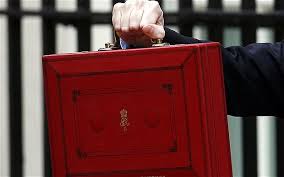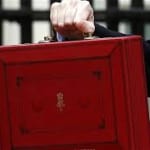

As this was the third Budget within the space of 12 months, it was thought there’s not much that could be done to surprise us and as usual some information got leaked beforehand, but the Chancellor managed to produce a couple of surprises.
PERSONAL TAXATION
Income Tax & National Insurance Contributions
The personal allowance will increase to £11,500 and the higher rate threshold for 40% tax will rise to £45,000 for 2017/18. The National Insurance contribution (NIC) upper earnings limit will also increase to remain aligned with the higher rate threshold.
Property and trading allowances
From April 2017 there will be a new £1,000 allowance for property income and also a £1,000 allowance for trading income. Individuals with property income or trading income within this allowance will no longer need to declare or pay tax, and they can choose to pay tax on the excess income over the allowance rather than calculate their actual profit.
Restriction on landlords’ interest relief
The phased restriction of tax relief on interest payments by residential property landlords will start in April 2017 as already legislated. Finance Bill 2016 will make some clarifications and amendments to ensure it operates as intended. So beneficiaries of deceased persons’ estates will be entitled to the basic rate tax reduction.
Limited Companies working in the public sector
From April 2017, public sector bodies and agencies will be made responsible for operating the tax rules for individuals who work in the public sector off-payroll through limited companies
Tax-free childcare
Tax-free childcare will be rolled out for children under age 12 from early 2017. The existing employer-supported childcare scheme will remain open to new entrants until April 2018.
PENSIONS, SAVINGS AND INVESTMENTS
Lifetime ISA and ISA limit
A new Lifetime ISA will be available from April 2017 for adults aged under 40. There will be an annual contribution limit of £4,000 and savers will receive a 25% government bonus, i.e. £1,000 bonus for every £4,000 contributed. Funds, including the bonus, can be used to buy a first home at any time from 12 months after opening an account. They can be withdrawn tax free from age 60 for other purposes.
The overall annual ISA subscription limit will be increased to £20,000 from 6 April 2017.
ISAs – tax advantages during the administration period-The ISA savings of a deceased person will continue to benefit
from ISA tax advantages during the administration of their estate
Help to Save
Individuals in low-income working households (e.g. those receiving Universal Credit) will be able to save up to £50 a month in a Help to Save account and receive a 50% government bonus after two years. Account holders can then choose to continue saving for a further two years’ bonus.
CAPITAL TAXES
Capital gains tax
The higher rate of capital gains tax (CGT) will be reduced from 28% to 20% and the lower rate will reduce from 18% to 10% with effect from 6 April 2016. The 28% and 18% rates will continue to apply to carried interests and to chargeable gains on residential property.
Stamp duty land tax
The extra 3% stamp duty land tax (SDLT) will apply to purchases of additional residential properties from 1 April 2016. Following consultation there will be no exemption from the higher rates for significant investors. Purchasers will have 36 months (rather than 18 months as originally proposed) to claim a refund of the higher rate if they buy a new main residence before disposing of their previous main residence.
OTHER CHANGES IN THE BUDGET:
Reduction in The corporation tax rate, which is currently 20% and due to fall to 19% in 2017, will be reduced to 17% from 1 April 2020.
The introduction of a Pensions Advice Allowance, which will allow pension scheme members to withdraw up to £500 tax-free from a DC scheme before the age of 55 to pay for financial advice (a recommendation from the recent Financial Advice Market Review, subject to consultation).
Business rates
From 1 April 2020 business rates in England will be uprated by reference to the CPI instead of the RPI. From 1 April 2017 small business rate relief (SBRR) will double and the SBRR threshold will be raised to rateable values of up to £12,000 tapering to £15,000. The government will aim to introduce more frequent revaluations of properties.
Insurance premium tax (IPT)
The standard rate of IPT will be increased from 9.5% to 10% from 1 October 2016.
Restructuring the Money Advice Service
The Pensions Advisory Service and Pension Wise to create two new bodies: a new pensions guidance body and a new, slimmed down money guidance body
